Carbon Capitalism
Carbon Capitalism
Energy, Social Reproduction and World Order
Tim Di Muzio

London New York
Published by Rowman & Littlefield International, Ltd.
Unit A, Whitacre Mews, 26-34 Stannary Street, London SE11 4AB
www.rowmaninternational.com
Rowman & Littlefield International, Ltd. is an affiliate of
Rowman & Littlefield
4501 Forbes Boulevard, Suite 200, Lanham, Maryland 20706, USA
With additional offices in Boulder, New York, Toronto (Canada), and Plymouth (UK)
www.rowman.com
Copyright 2015 Tim Di Muzio
All rights reserved. No part of this book may be reproduced in any form or by any electronic or mechanical means, including information storage and retrieval systems, without written permission from the publisher, except by a reviewer who may quote passages in a review.
British Library Cataloguing in Publication Data
A catalogue record for this book is available from the British Library
ISBN: HB 978-1-78348-097-5
PB 978-1-78348-099-9
Library of Congress Cataloging-in-Publication Data
Di Muzio, Tim
Carbon capitalism : energy, social reproduction and world order / Tim Di Muzio.
pages cm
Includes bibliographical references and index.
ISBN 978-1-78348-097-5 (cloth : alk. paper) ISBN 978-1-78348-098-2 (pbk. : alk. paper) ISBN 978-1-78348-099-9 (ebook) 1. Energy securityPolitical aspects. 2. Energy consumptionPolitical aspects. 3. Fossil fuelsPolitical aspects. 4. Natural resourcesPolitical aspects. 5. Capitalism. 6. Geopolitics. I. Title.
HD9502.A2.D525 2015
333.79dc23
2015019532
 The paper used in this publication meets the minimum requirements of American National Standard for Information SciencesPermanence of Paper for Printed Library Materials, ANSI/NISO Z39.48-1992.
The paper used in this publication meets the minimum requirements of American National Standard for Information SciencesPermanence of Paper for Printed Library Materials, ANSI/NISO Z39.48-1992.
Printed in the United States of America
Rakkaalleni, Hannalle
Contents
Preface
I t is likely that every book ever written never comes out exactly as one intended it at the stage of conception. Every study is a particular bundle of silencesso Trouillot tells usand this study is no different (1995, 27). It is a work set in a particular time period and written in particular places. There are always gaps to fill, time constraints and more literature to consult and critically reflect on, particularly the more we try to engage literatures outside our own narrow fields of specialization. But in the end, the author cannot escape making decisions of what to include and exclude, what to emphasize and what to downplay, how to weigh agency and structure and how to balance theory and history. The author, as it were, is a bit like a curator of words, thoughts, histories and theories. If Foucault is correct to say that knowledge is not made for understanding but for cutting, much has been left on the cutting room floor in the curation of this work (1984, 88). In truth, dear reader, this book could have been twice the length and filled with even more examples, but my partner reminds me that there will be other books to write. As you will come to find, what I have tried to do is provide a brief genealogy of what I call carbon capitalism and its concomitant petro-market civilization. I have done so, and the reader will have to judge how well, by focusing on the exploitation of fossil fuels, the forms of social reproduction that were made possible and the logic of differential capitalization. Readers who are interested in the history of capitalism will find a new theory of its emergence viewed from the capital-as-power perspective, one that takes energy, social reproduction and capitalization as fundamental aspects of the making of a world order. I hope the reader finds my arguments unique, well defended and insightful, but I will always welcome criticism. In this sense, I am well aware that this is not the final word on the subject. I have many people to thank, and the usual suspects know who they are. But this book would not have been possible without Hannas patience and Matthew Dows kind assistance with research. I also thank Tim Onslow for diligently preparing the index and Anna Reeve for supporting the project. I owe a great deal of this work to them. To conclude this short preface, I would like to leave you with a quote from Paul Sweezy that expresses my sentiments about this work almost exactly: The conclusions so reached are obviously tentative; they are set forth here, however, because it seems likely that the insight gained by pursuing this method is sufficiently enlightening to warrant a great deal of further study along the same general line (cited in Fine 1988, 237).
Carbon Capitalism and Petro-Market Civilization
I n 2005 and 2007 a war game was played out by former high-ranking government officials in Washington DC. Entitled Oil Shockwave, the goal of the simulation was to analyze how policymakers might respond to a sudden oil shock brought on by conflict and political instability in Venezuela, Iran and the Caspian Basin. In the crisis scenario, a small amount of oil4 percentwas taken off the world market, leading to a giant spike in oil prices from US$58 dollars a barrel to US$161. War in the Middle East, the return of the draft, petrol rationing at gas stations, extreme price inflation, increasing unemployment levels and the depletion of the US Strategic Petroleum Reserve (SPR) were all countenanced as plausible results of the crisis. Robert M. Gates, the Oil Shockwave national security advisor, noted that the real lesson here [is that] it only requires a relatively small amount of oil to be taken out of the system to have huge economic and security implications. The simulations were sponsored by Securing Americas Future Energy (SAFE) and the National Commission on Energy Policy (NCEP). They were intended to highlight the United States dependence on oil for its economic well-being and security, as well as to point out how years of policy inaction on renewable energy and oil dependence could lead to foreseeable, but potentially avoidable, catastrophes at multiple levels of the socioeconomic order of the United Statesand by extension, most of the petroleum-soaked world.
What seems so strange about these simulations is that they followed two decades of cheap and abundant fossil fuels, uneven but generally growing economies, a revolution in telecommunications, the dissolution of the Soviet Union and the widespread belief in the globalization of capitalist markets and neoliberal development. Of course, actual capitalism has never tended toward any equilibriumreal or imaginedbut what was noticed in the simulations went beyond mere commonsense notions that capitalist markets could be unpredictable, unstable or prone to manias, corporate fraud and abuse (Kindleberger and Aliber 2005). The simulated crisis was not about the dangers of globalized markets and greedy irrational actors pursuing their own gain at the expense of society. Nor was it a crisis where the right mix of fiscal or monetary policy could come swiftly to the rescue to restore economic growth and employment. The simulated crisis was far more profound than the collapse of markets or the dangers of debt and financial alchemy; the crisis was so foundational that its scale and scope were civilizational.
Our leaders could be forgiven for their inaction and short-sightedness if this were the first time oil was recognized as essential to the social reproduction of a more globalized and capitalized world order. But they cannot. The fact that fossil fuels are nonrenewable sources of energy and that their production will eventually decline and become more expensive has long been discussed even before Hubberts graphs on peak oil production in the United States were drafted. Though there was prior recognitionparticularly among the US and UK armed forces and some geologiststhe oil price spikes of the 1970s were watershed moments in alerting entire populations to the extent their lifestyles had become reliant on stored sunshine (Crosby 2006, 62). From 1972 to the early 1980s, when oil prices finally started to slowly decline, the price of oilnever its full ecological costshad increased by an overall figure of 504 percent. The price shocks helped generate double-digit inflation and skyrocketing unemployment in advanced economies and ballooned balance-of-payments deficits for most oil-importing countries, triggering an international debt crisis in the 1980s and the tombstone of the New International Economic Order (George 1988; Murphy 1984). The oil shocks also motivated the creation of the International Energy Agency (IEA) as a counter to the Organization for Petroleum Exporting Countries (OPEC). The latter was created in 1960 as an intergovernmental organization to coordinate the output and pricing of oil among major producers/exporters. The IEA, housed in Paris, was mandated to gather statistics, monitor the world energy situation and provide advice to its members on energy policy. Members of the organizationmostly net importers of oilwere also required to store a reserve of oil equivalent to ninety days of the previous years imports. The crisis even seeped into Anglophone popular culture in films like Three Days of the Condor (1974) and the Mad Max trilogy (19791985). The former, starring Robert Redford and directed by Sydney Pollack, was a fictional portrayal of how far clandestine security forces were willing to go to keep Middle Eastern oil flowing to the United States and its allies. The latter, starring Mel Gibson and directed by George Miller, fictionalized the breakdown of law and order in the Australian outback due to the scarcity of oil.
Next page
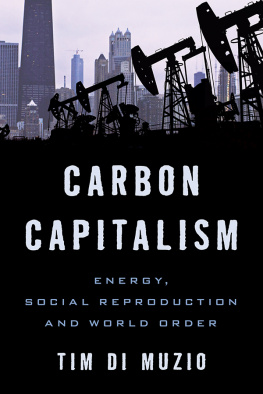
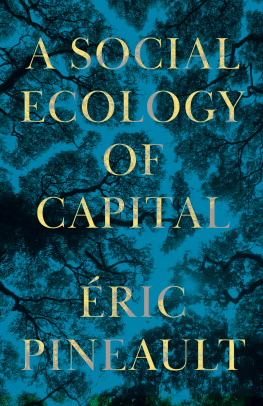
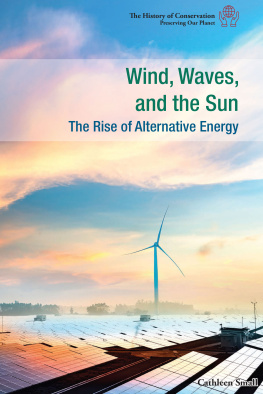


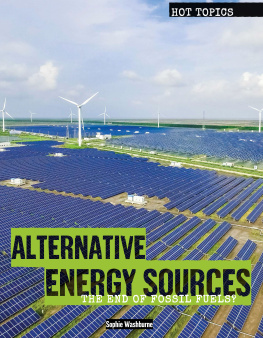
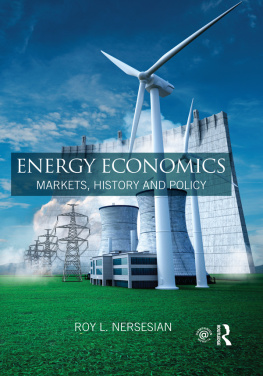
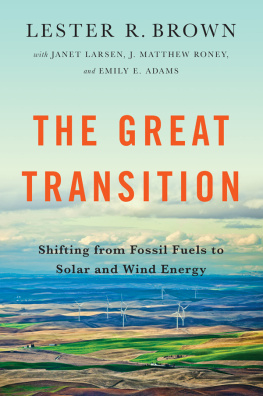
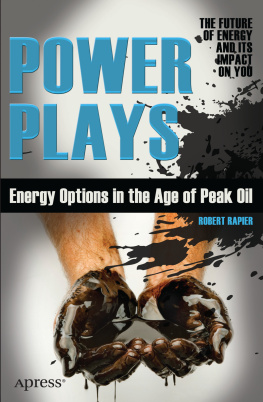

 The paper used in this publication meets the minimum requirements of American National Standard for Information SciencesPermanence of Paper for Printed Library Materials, ANSI/NISO Z39.48-1992.
The paper used in this publication meets the minimum requirements of American National Standard for Information SciencesPermanence of Paper for Printed Library Materials, ANSI/NISO Z39.48-1992.